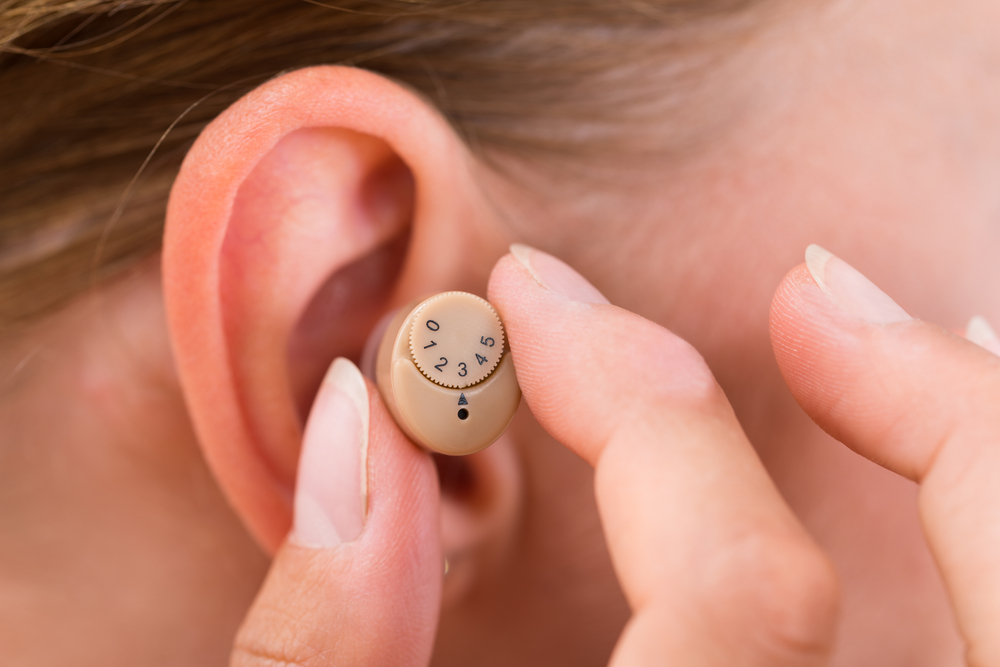Comprehensive Guide to Hearing Aids Prices and Options for Seniors
Navigating the world of hearing aids can feel overwhelming, especially for seniors and pensioners in Ireland seeking quality solutions that fit their budget. With a wide range of devices available—from basic models to advanced digital systems—understanding what's available and what you can expect to pay is essential. This guide breaks down pricing structures, explores affordable options, and highlights key features to consider when choosing a hearing aid that meets both your hearing needs and financial circumstances.

Hearing loss affects millions of seniors worldwide, and Ireland is no exception. As we age, the ability to hear clearly can diminish, impacting daily communication, social interactions, and overall quality of life. Fortunately, modern hearing aids offer effective solutions, but understanding the costs and options available can be challenging. This guide provides practical insights into hearing aid pricing for seniors in Ireland, explores affordable alternatives, and explains what pensioners should consider when selecting a device.
What Factors Influence Hearing Aid Prices for Seniors in Ireland?
Several factors determine the cost of hearing aids in Ireland. The technology level is a primary consideration—basic analogue devices are generally less expensive than advanced digital models with features like Bluetooth connectivity, noise reduction, and directional microphones. The style of hearing aid also affects pricing: behind-the-ear models tend to be more affordable than nearly invisible in-the-canal devices. Additionally, the level of customization, brand reputation, and whether the device includes warranties or aftercare services all contribute to the final price. Audiologist fees for fitting and follow-up appointments may be included or charged separately, so it’s important to clarify what’s covered upfront.
How Much Do Hearing Aids Typically Cost in Ireland?
Hearing aid prices in Ireland vary significantly based on technology and provider. Entry-level devices may start around €500 to €1,000 per ear, offering basic amplification suitable for mild to moderate hearing loss. Mid-range models, which include more sophisticated features like multiple listening programs and feedback cancellation, typically range from €1,200 to €2,500 per ear. Premium hearing aids with cutting-edge technology, rechargeable batteries, and smartphone compatibility can cost between €2,500 and €4,000 or more per ear. Many seniors require two hearing aids, which can double these costs. It’s worth noting that some providers offer package deals that include the devices, fitting appointments, and ongoing support.
| Provider/Retailer | Device Type | Cost Estimation (per ear) |
|---|---|---|
| Specsavers | Basic to Mid-Range | €795 - €2,295 |
| Hidden Hearing | Mid to Premium Range | €1,495 - €3,995 |
| Boots Hearingcare | Entry to Premium | €895 - €3,495 |
| Independent Audiologists | Varies by Brand | €1,000 - €4,500 |
| HSE (Public Health) | Basic Models | Free (eligibility required) |
Prices, rates, or cost estimates mentioned in this article are based on the latest available information but may change over time. Independent research is advised before making financial decisions.
What Affordable Hearing Aids Are Available for Seniors?
Affordable options exist for seniors who need effective hearing solutions without breaking the bank. Many providers in Ireland offer entry-level digital hearing aids that deliver solid performance for everyday listening situations. Some retailers provide financing plans or payment installments to make devices more accessible. Online hearing aid retailers have also emerged, offering lower-priced models that can be programmed remotely, though these may lack the personalized fitting and ongoing support provided by traditional audiologists. Additionally, refurbished or previous-generation models from reputable brands can offer significant savings while still providing quality amplification.
Are There Financial Supports for Pensioners Seeking Hearing Aids?
Pensioners in Ireland may be eligible for financial assistance when purchasing hearing aids. The Health Service Executive provides free hearing aids to medical card holders and individuals who meet specific criteria, though waiting times can be lengthy and device selection may be limited. The Treatment Benefit Scheme, available to those with sufficient PRSI contributions, offers a contribution toward hearing aids every four years—currently around €500 per aid. Private health insurance policies sometimes include coverage for hearing aids or audiological services, so reviewing your policy details is worthwhile. Some charitable organizations and local support groups also offer grants or assistance programs for seniors facing financial hardship.
What Features Should Pensioners Prioritize When Choosing Hearing Aids?
When selecting a hearing aid, pensioners should focus on features that enhance usability and comfort. Ease of handling is crucial—devices with simple controls and easy battery replacement are ideal for those with limited dexterity. Sound quality matters more than brand prestige; look for aids with good speech clarity and background noise management. Comfort is essential for all-day wear, so proper fitting by a qualified audiologist is important. Battery life or rechargeable options reduce maintenance hassles. Telecoil technology can improve hearing in public venues equipped with loop systems, common in Irish churches and theaters. Finally, consider the availability of local aftercare and adjustment services, as hearing needs can change over time.
How Can Seniors Ensure They Get the Right Hearing Aid?
The process begins with a comprehensive hearing assessment conducted by a qualified audiologist or hearing specialist. This evaluation determines the type and degree of hearing loss, which guides device recommendations. Seniors should ask questions about warranty coverage, trial periods, and return policies—most reputable providers offer a trial period of 30 to 60 days. Comparing quotes from multiple providers helps identify competitive pricing and service packages. Reading reviews and seeking recommendations from other seniors who use hearing aids can provide valuable insights. It’s also wise to consider future needs; investing in a slightly more advanced model may prove more cost-effective long-term if hearing loss progresses.
Choosing the right hearing aid involves balancing cost, features, and personal needs. With various pricing tiers and financial supports available, seniors in Ireland have access to solutions that can significantly improve their hearing and quality of life. Taking time to research options, consult professionals, and explore available assistance programs ensures a well-informed decision that provides both value and effectiveness.




